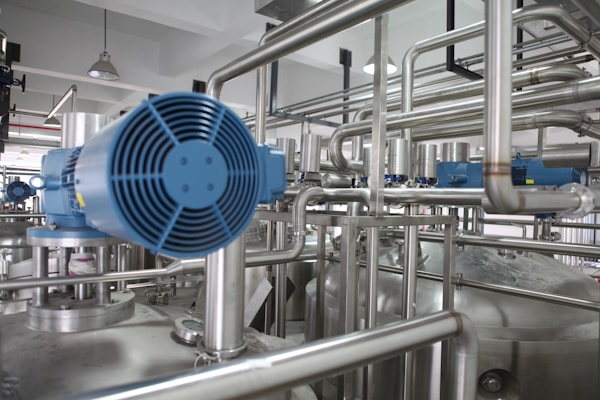Automation has become an essential part of several industries, and for a good reason. It improves the efficiency of processes, reduces errors, and enhances productivity, among other benefits. Most industries, including manufacturing, agriculture, healthcare, and logistics, rely on automation to achieve optimal results. In this article, we’ll look at how to automate your industrial processes. Keep reading to learn more.
What are the benefits of using a fanless PC to automate industrial processes?

Rugged, fanless PCs are becoming increasingly popular in industrial settings because they offer a powerful computing solution with a longer lifespan than traditional desktops. They are designed to withstand harsh environments with high dust levels, vibrations, and extreme temperatures, making them ideal for industrial automation applications.
The rugged fanless PC does not have moving parts, reducing the risk of component failure due to dust accumulation. Instead, they use passive cooling techniques that make them more reliable and durable. Fanless PCs also operate silently, reducing noise pollution in the workplace, which is especially important in noise-sensitive industries.
One of the most significant advantages of fanless PCs is their ability to automate industrial processes. They’re specifically designed to function 24/7, enabling automation and data acquisition without the risk of system downtime. These PCs are designed with high-performance features that enable them to process multiple signals and data simultaneously, making them capable of managing complex workflow systems.
With fanless PCs, industrial processes such as machine inspection, inventory management, and quality control can be fully automated, resulting in increased efficiency, cost savings, and improved accuracy.
Furthermore, fanless PCs offer a lower total ownership cost than traditional desktops. They are built to last longer and require less maintenance due to their robust design, which makes them ideal for harsh industrial environments. Additionally, their compact size and energy-efficient technology consume less power and require less space, resulting in additional cost savings in the long run.
Fanless PCs are a crucial component of industrial automation, allowing businesses to optimize their production processes and stay competitive. They offer reliability, durability, and resilience, making them ideal for deployment in harsh industrial environments where automation is prevalent, allowing for smooth and continuous operations with minimal downtime.
What are the benefits of automation of industrial processes?

Technological advancements have made industrial processes more efficient and streamlined than ever before. Automation is one of the most significant developments to transform the manufacturing industry. It’s the use of technology to perform tasks without human intervention. Automated processes have proven to increase productivity, enhance operational efficiency, and lower operating costs.
One of the primary benefits of automation in industrial processes is increased production output. Automated systems can work continuously without breaks or downtime, resulting in higher production rates. This increased efficiency can also cut down on production time and reduce manual errors, leading to improved quality control in products.
Another significant advantage of automation is the reduction of labor costs. The manual labor required for industrial processes can be costly and can lead to errors in production. With automation technology, fewer workers are needed to oversee production, and therefore, the cost of labor can be kept to a minimum. Automation also keeps workers safe by removing them from hazardous environments and providing them with more manageable tasks to focus on.
Additionally, automation provides companies with real-time data collection and analysis in the manufacturing process. This allows for timely and informed decision-making and increases transparency, traceability, and quality control. Automation helps businesses gain valuable insights into their production line, identify areas of improvement, and optimize production processes.
Automating industrial processes is a great way to increase efficiency and productivity while reducing costs. It can help streamline processes, reduce human error, and provide enhanced visibility into the entire process. Automation can also help reduce the time needed to complete tasks and increase customer satisfaction. By leveraging the power of automation, businesses can stay competitive and maintain a strong position in the market, resulting in more significant profits and growth potential.

